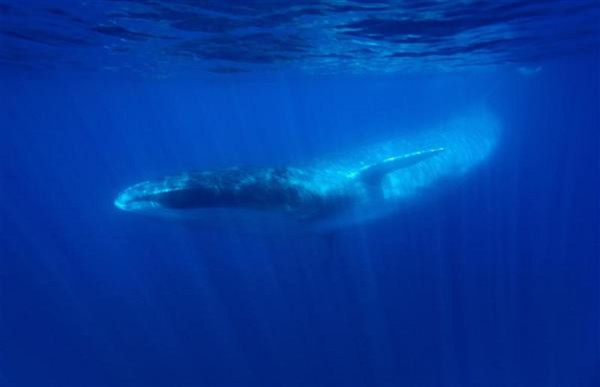Moby Dick Exults: South Korea To End Whaling For 'Scientific' Purposes

Bowing to pressure from global environmentalist groups, the government of South Korea said it will abandon its practice of “scientific whaling.”
According to reports, the Prime Minister of South Korea Kim Hwang-sik received more than 100,000 messages from people around the world last month alone, demanding his country’s whalers call off a planned hunt for minke whales -- an endangered species -- for commercial purposes.
“We reached a conclusion that there’s no need to do scientific whaling if we can achieve the same results by using nonlethal means,” Lee Se-oh, an official at South Korea’s Ministry of Food, Agriculture, Forestry and Fisheries, told the Wall Street Journal.
Greenpeace, one of the leading environmentalist organizations behind the campaign, hailed Seoul’s decision.
“The voices of people from South Korea and the entire world have been heard by the South Korean government,” said Greenpeace East Asia oceans campaigner Jeonghee Han.
“The South Korean government’s decision to not take up scientific whaling is another sign that commercial whaling has no place in our oceans. We urge South Korea to abandon all commercial whaling activities in the future.”
John Frizell, Greenpeace International oceans campaigner, stated that the global whale population can be sustained by the elimination of commercial whaling.
“The world does not support commercial whaling, even when it is disguised as scientific research,” he stated.
“The decision by South Korea to listen to its own people and the global community and abandon a whaling program modeled on that of Japan is a huge win for the world’s whales.”
The International Fund for Animal Welfare also praised the move but also urged South Korea to cut the number of whales that get caught in fishing nets.
"The government of Korea made the right call and should be commended for it," Patrick Ramage, the director of the fund's global whale program, said.
"Whaling in the name of science is unnecessary, and killing whales for commercial purposes is a proven ethical, ecological and economic loser in the 21st century. We stand ready to support Korea in whatever appropriate way as it embarks on state-of-the-art, nonlethal whale research in Korean waters."
In previous years, South Korea, like Japan, justified the hunting of whales by asserting that was the only method available to “study” them.
However, given the Korean taste for whale meat, critics charged that hunting was designed solely to provide food.
South Korea also had claimed that resurgence in the whale population had depleted fish and squid stocks in the Pacific and elsewhere.
Nonetheless, South Korea has had a moratorium on commercial whaling since 1986 as imposed by the International Whaling Commission; however, it frequently bypassed that restriction by claiming to harpoon whales for “scientific research.”
Japan has used a similar ruse to kill hundreds of whales annually.
The practice of whaling in Korea goes back some 8,000 years and is centered in the port city of Ulsan, which is also the base of the nation’s whale meat industry.
© Copyright IBTimes 2024. All rights reserved.











